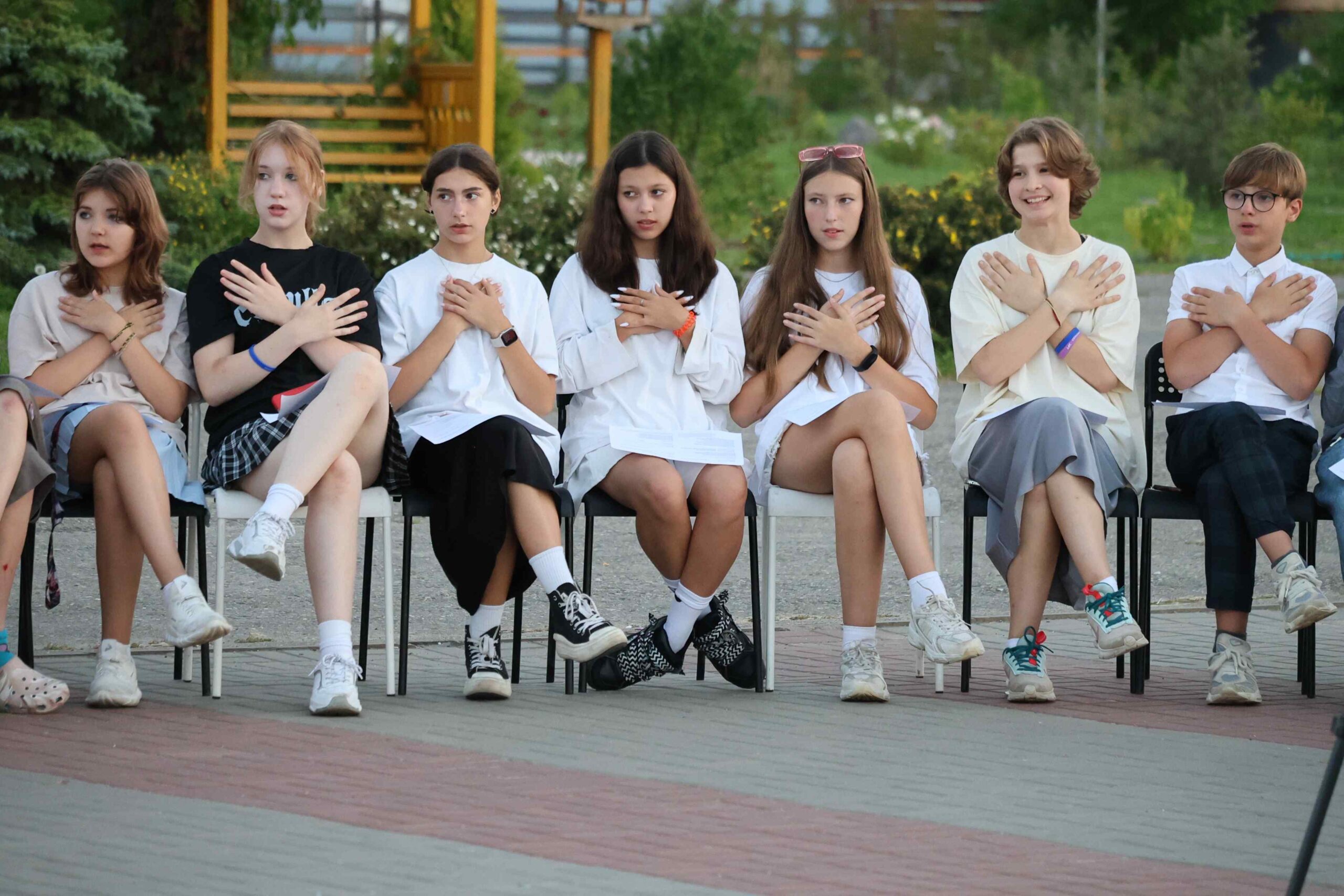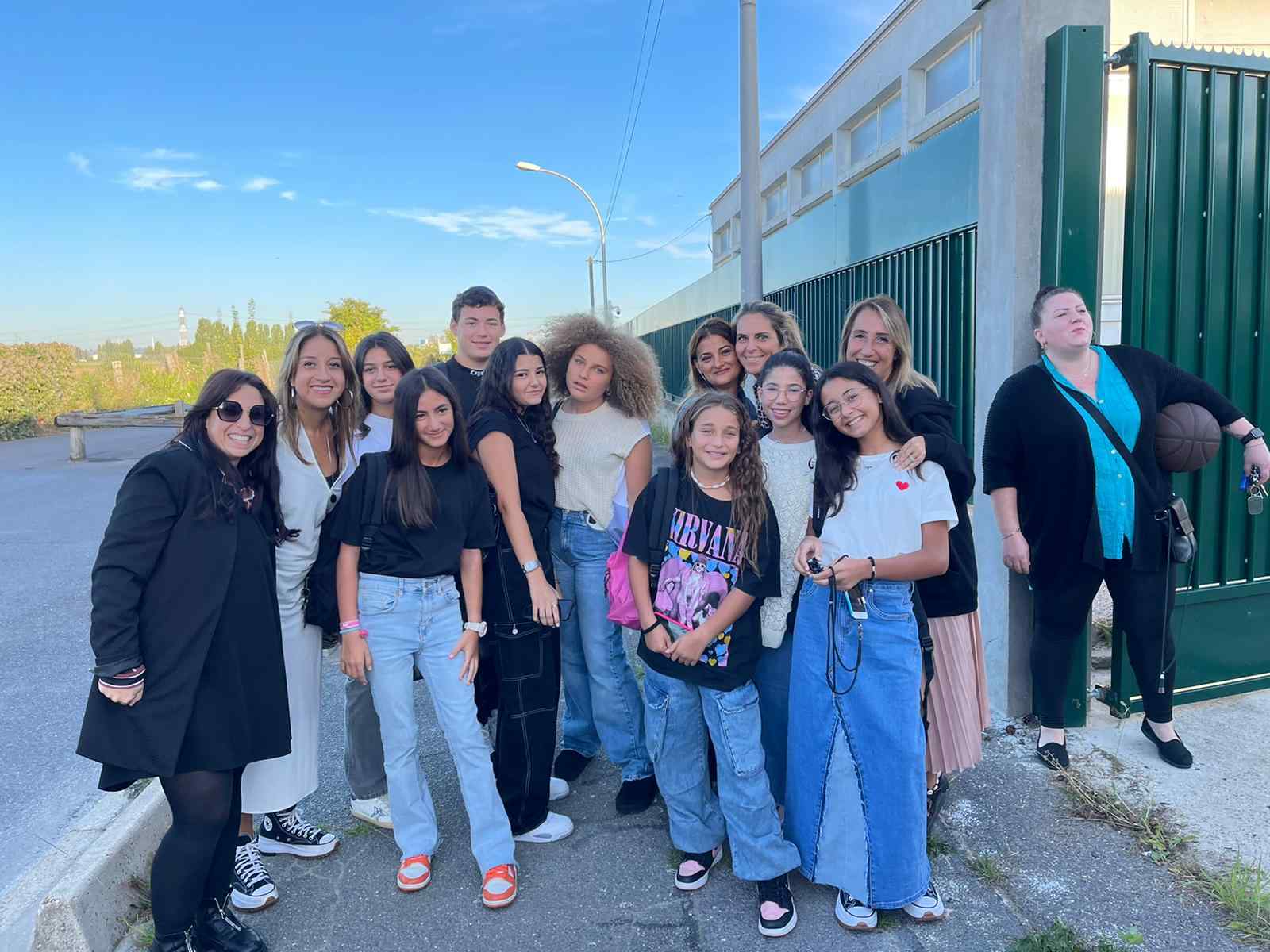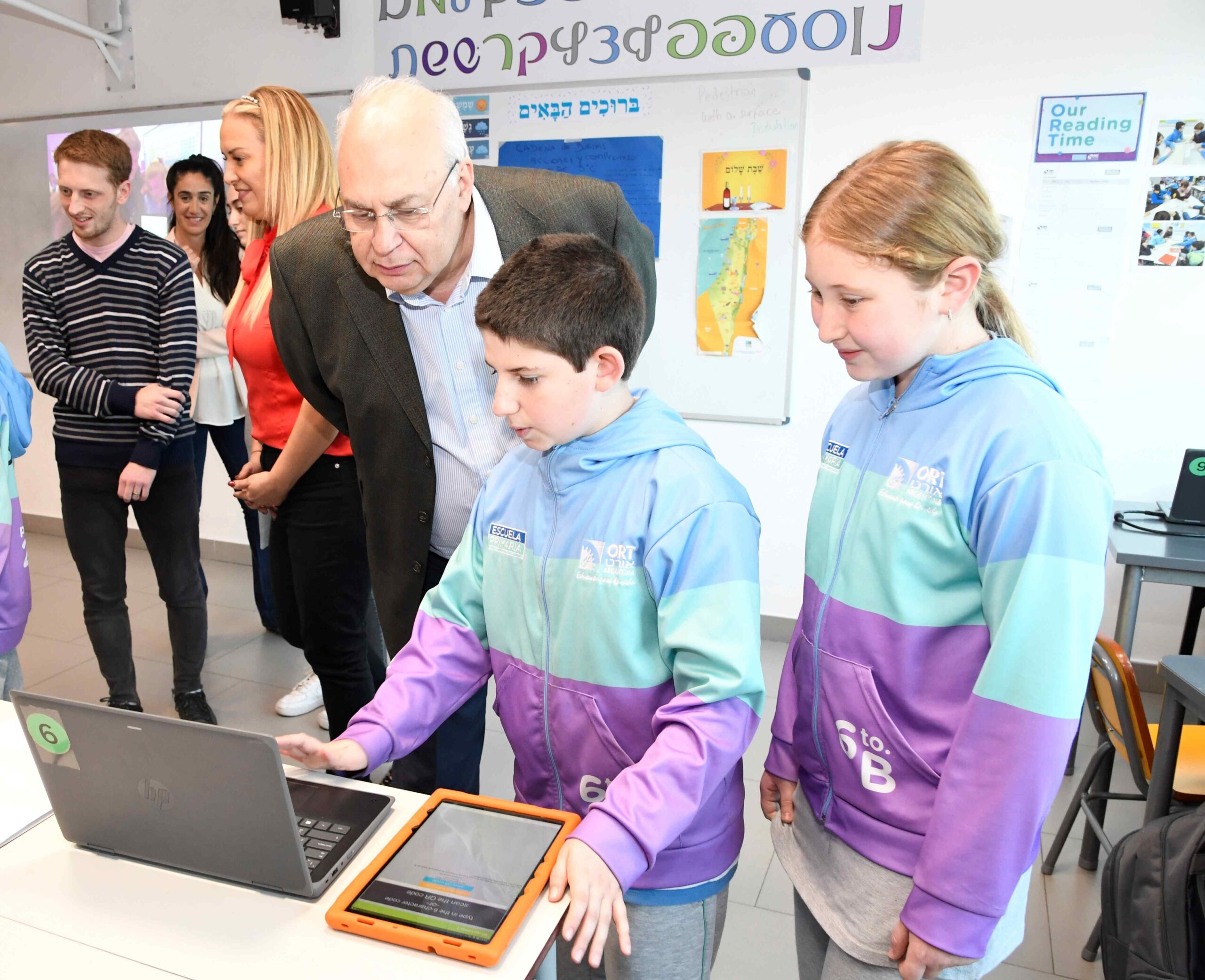

Russia is the birthplace of ORT. The organization was founded in 1880 in St. Petersburg to provide Russian Jews with employable skills as a way out of poverty. It expanded into a global charity, and has played a pivotal role in the renewal of Jewish community life in the country, recreating a dynamic educational network serving more than 10,000 people annually.
ORT Russia’s network of five Jewish schools, run in cooperation with local governments and Israel’s Ministry of Education, provide high level education and Jewish studies to more than 7,320 full-time students aged between three and 17.
The organization continues to provide advanced education to attract Jewish families who, although mainly interested in ensuring a first-rate general education for their children, will also benefit from ORT schools’ Jewish education.
Current schools and programs include:
Moscow ORT Technology School (School #1540), Moscow
Founded in 1994, Moscow ORT Technology School is one of Russia’s most comprehensive and innovative educational institutions, combining general, technological, and ethno-cultural Jewish education. It educates more than 1,640 students from kindergarten through to high school age and is recognized for its academic performance and contributions to inclusive education.
ORT Tekhiya School #1311, Moscow
Founded in 1991, ORT Tekhiya School #1311 was the first Jewish state school in post-Soviet Russia and remains a pioneering institution in Jewish and technology education. It serves more than 1,050 students of preschool to high school age and is recognized as a model of educational innovation, and for its rich interdisciplinary approach, inclusive ethos, and contribution to Moscow’s educational excellence.
Saint Petersburg ORT de Gunzburg School #550 “Shorashim”, St. Petersburg
ORT de Gunzburg Secondary School #550 “Shorashim”, which was founded in 1993, serves more than 460 students from grades 1 to 11. A school for in-depth IT and language studies, it blends advanced technology instruction with a strong Jewish ethno-cultural curriculum and places significant emphasis on innovation, digital learning, and personalized cultural education.
Samara ORT Gesher School #42, Samara
Established in 1939, Samara ORT Gesher School #42 is one of the city’s oldest educational institutions and incorporates Jewish studies and technology education through a partnership with World ORT. It has become a regional leader in STEM and computer science education, offering advanced programming, digital design, and robotics courses, and is deeply involved in community-building and inter-ethnic dialogue.
ORT Mishpahteynu Secondary School #12, Kazan
This school, in the center of Kazan, Tatarstan, is municipally subsidized and serves grades one through 11. It combines a national education with specialized tracks in Jewish studies and technology and is highly regarded for its project-based learning, interdisciplinary instruction, and integration of modern technology.
YESOD ORT-Fablab at the YESOD Jewish Cultural Center, St Petersburg
In 2025, work will start to transform the YESOD ORT-Fablab into a full-scale Resource and Methodological Development Center, designed to support students, educators, and community members locally and across the wider ORT Russia network. With a projected reach of more than 500 local participants and 4,500+ people across the country, the center will focus on AI, digital creativity, and the development of innovative teaching practices.
Yekaterinburg ORT VTC Center
The programs of the Yekaterinburg ORT Career Training Center serve seniors aged 55+, teachers, families seeking digital guidance, and community members interested in open education formats and combine practical education with community-building. The center works closely with the Jewish Cultural Center “Menorah,” and collaborates with SMART J to expand access to learning tools and digital empowerment.
During and after the First World War, ORT’s workshops, credit, and labor offices saved thousands from starvation and unemployment. After the 1917 Russian Revolution, ORT worked with the Soviet authorities to establish and support industrial and agricultural collectives. It imported and supplied materials, machinery, farming equipment, and expertise throughout the Soviet Union.
In 1938, ORT’s cooperation agreement with the Soviet authorities expired and was not renewed. The organization was forced to end its operations in the Soviet Union until 1990, when it opened computer laboratories in six Russian cities. In 1995, the first ORT school was inaugurated in Moscow, followed by a resource centre at a Jewish school in St. Petersburg.


